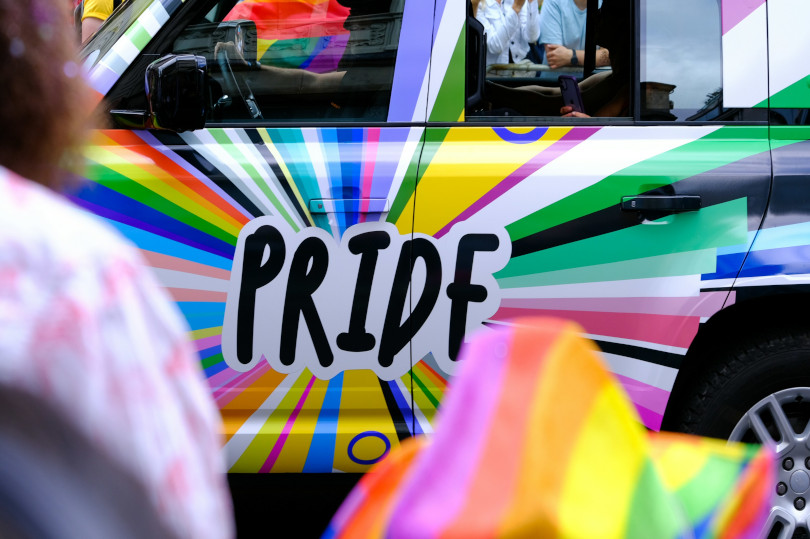Pride month has always had its roots in protest; only in the years following the 1969 police raid of the Stonewall Inn did Pride adopt a celebratory attitude. This year, Pride month continues to create space for community, solidarity, and resistance. As the lives of queer, trans, immigrant, and nonwhite communities face increasing threats under the Trump administration, the meaning of Pride takes on a particular importance.
In 2025, Pride is still a protest. In response to President Trump’s organizing of a military parade to celebrate his birthday, a nationwide “No Kings” demonstration was organized on June 14 to advocate for the lives of systemically marginalized communities who have been harmed by Trump administration policies. According to Washingtonian, millions participated across the country, and the D.C. area saw approximately five thousand participants. Though protest of this caliber is encouraging, some online discourse has indicated that the No Kings protests have not adequately addressed Israel’s occupation of Gaza, or issues that disproportionately impact people of color in the United States.
Unfortunately, communities of color, and trans communities being excluded from protest, and celebration during Pride is far from a new phenomenon.
Pride celebrations began in D.C. 50 years ago this June, 6 years after the Stonewall uprisings. The district saw its first Pride celebrations begin in Dupont Circle with “Gay Pride Day,” which was a single day celebration, a small block party meant to foster visibility and allyship for the gay community of D.C. This, however, meant White, cisgender, gay men. D.C. was a microcosm, reflective of much wider spread bigotry within the fight for queer liberation.
Pride has grown, both in size and representation in the district. Recently, D.C. hosted World Pride 2025, which aimed to bring not only an economic influx to the city, but a wave of inclusion and safety for everyone in attendance. But groups of people with multiple marginalized identities have expressed discomfort in the nation’s capital, as the Trump administration continues its siege on human rights. Individual acts of violence continue, like the vandalization of Sinners and Saints, D.C.’s only QTBIPOC (queer, trans, Black, Indigenous people of color) bar.
Great strides have been made for D.C.’s LGBTQ+ community at large, and that should be celebrated. But the unique position of D.C. and its queer community today also bares great importance.
Celebration and joy in the face of oppression is resistance in its own right, but not when it comes at the expense of others. As I.C.E. continues to raid communities, Gaza remains under attack, and the rights of QTBIPOC individuals remain under threat from the administration in the heart of D.C. Space must be made for shared grief, anger, and joy simultaneously. Pride does not mean only one thing, nor does it belong to any one person or group. Now, more than ever, is the time to recognize the interconnected nature of people’s struggle, and unify to uplift one another to fight for everyone’s collective liberation.
If you’re looking for a way to celebrate Pride, and take part in collective queer joy, you can join Femme Fatal D.C. in Malcom X Park from 1-4 p.m. on Saturday, June 28th for “Taste The Rainbow.” You can picnic, listen to music, and take part in any of the activities from embroidery to caricature painting. D.C. is also home to a lot of QTBIPOC-friendly businesses to visit. Loyalty Bookstore, located at 4203 9th St NW, offers events that celebrate Black, Queer, and disabled writers that are free to attend. As You Are D.C., a café right by the Eastern Market metro station, is a great spot to get a cup of coffee and enjoy an inclusive atmosphere.
Featured image/photo by Seymon Borisov on Unsplash.


